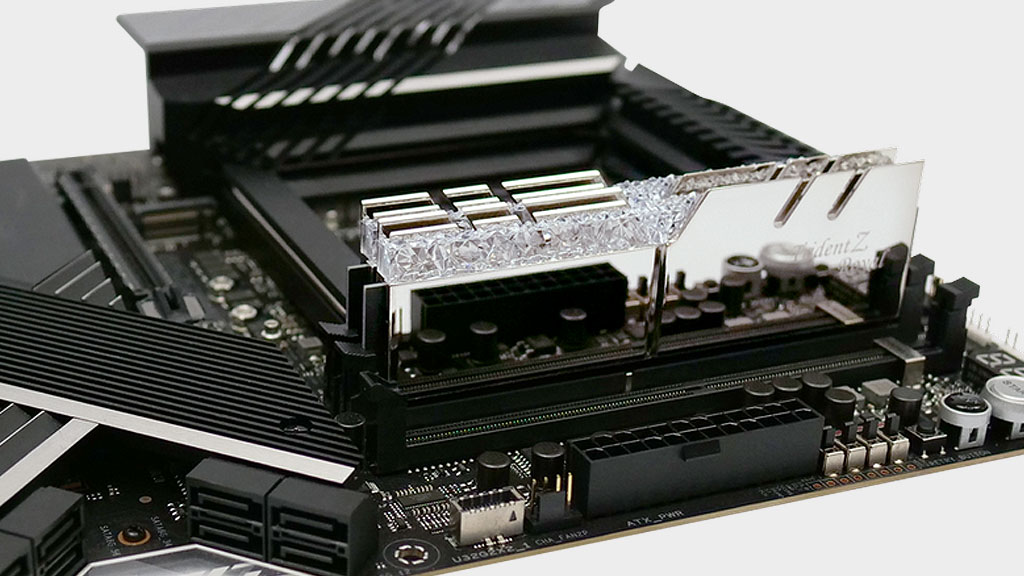G.Skill's new DDR4-5333 RAM for Rocket Lake is faster than some DDR5 kits
Don't expect it to be cheap, though.

G.Skill is thumping its chest over having launched a lineup of "extreme-speed" DDR4 RAM culminating in a 16GB (2x8GB) kit capable of hitting a blistering fast 5,333MHz on Intel's new Z590 platform, but the biggest bragging point goes unmentioned in the press release—this is now the fastest RAM on the planet. It's even ahead of some early DDR5 memory kits.

Best CPU for gaming: the top chips from Intel and AMD
Best graphics card: your perfect pixel-pusher awaits
Best SSD for gaming: get into the game ahead of the rest
That distinction previously belonged to Crucial's Ballistix Max 5100. Also offered in a 16GB kit, Crucial's DDR4-5100 memory will set you back an eye-popping $952. To put that into perspective, 16GB DDR4-3600 kits can be had for less than $100 these days, including from within the Ballistix family.
G.Skill has not announced pricing for its DDR4-5333 memory kit—I've been told in the past that it doesn't share that information because RAM pricing is constantly in flux—but there's absolutely no chance it lands in affordable territory. As a point of reference, the fastest 16GB kit from G.Skill I can find on Newegg is a DDR4-4600 kit for $542.
To be fair, these companies make no bang-for-buck claims when it comes to their most extreme kits. These are mostly intended for professional overclockers who chase world records. G.Skill happens to be very involved in the pro overclocking scene, as setting records with its RAM brings a certain cachet to the company and its product portfolio.
Of course, your mileage may vary depending on your motherboard. In this case, G.Skill's DDR4-5333 memory kit has been validated on three specific Rocket Lake motherboards: Asus ROG's Strix Z590-E Gaming WiFi and Maximus XIII Apex, and MSI's MEG Z590I Unify, each paired with an Intel Core i9 11900K processor.
As you might imagine, timings run loose at such a high frequency. As in, 22-32-32-52. It's sort of akin to gas mileage, in that there is a tradeoff for such high speeds (an imperfect analogy, I know).
How does this compare to DDR5? Well, eventually there will be DDR5 memory kits touting 8,400MHz speeds. In the early going, however, expect to see a rash of 4,800MHz offerings. DDR5 offers certain advantages, like on-die ECC (error correcting code) to fix memory errors on the fly and lower voltages. But in terms of raw speed, G.Skill's DDR4-5333 takes the lead over some DDR5 kits. That's impressive, even if impractical.
The biggest gaming news, reviews and hardware deals
Keep up to date with the most important stories and the best deals, as picked by the PC Gamer team.
Paul has been playing PC games and raking his knuckles on computer hardware since the Commodore 64. He does not have any tattoos, but thinks it would be cool to get one that reads LOAD"*",8,1. In his off time, he rides motorcycles and wrestles alligators (only one of those is true).


